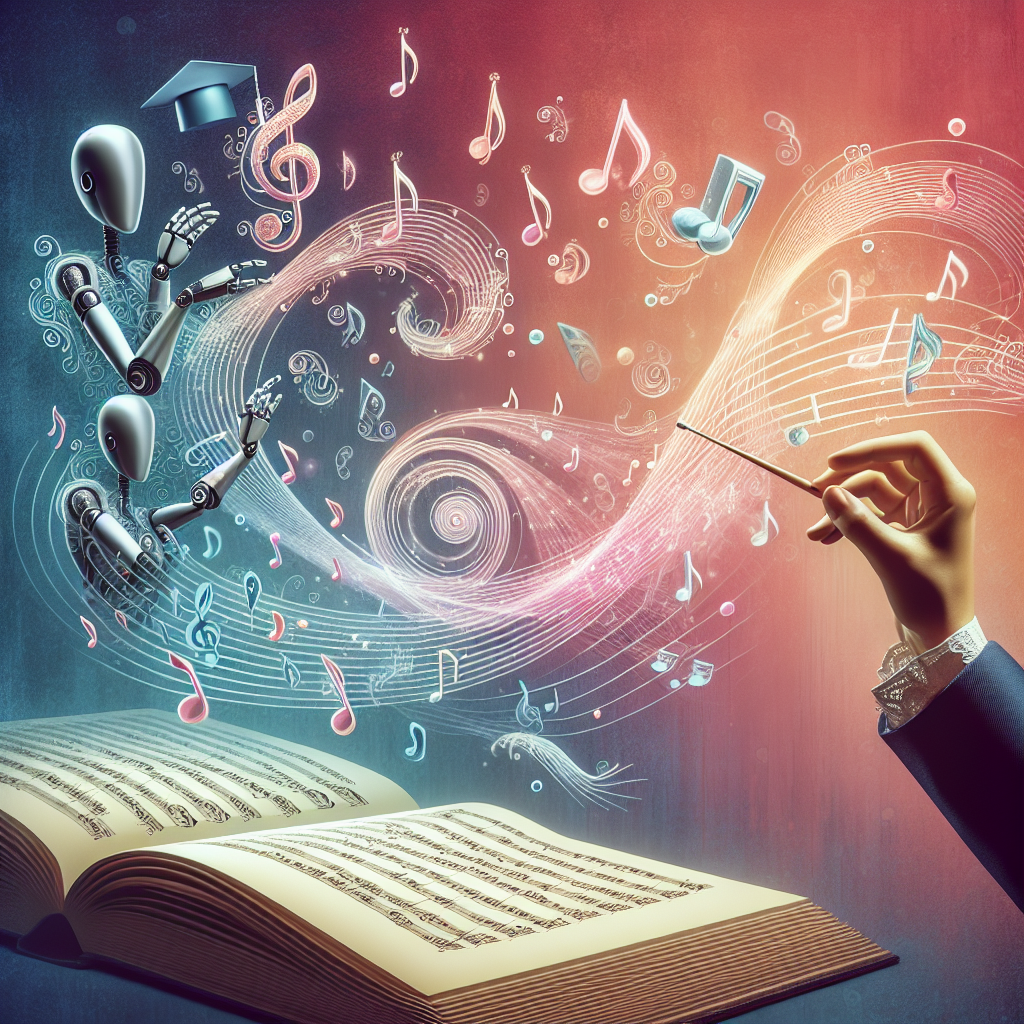The Role of AI in Music Education and Skill Development
In recent years, Artificial Intelligence (AI) has been making significant strides in various industries, including music education. With the advancement of technology, AI is becoming increasingly integrated into music education programs, offering new opportunities for students to learn and develop their musical skills. In this article, we will explore the role of AI in music education and its impact on skill development.
AI in Music Education
AI has the potential to revolutionize the way music is taught and learned. One of the key benefits of using AI in music education is its ability to provide personalized learning experiences for students. By analyzing data on a student’s performance, AI algorithms can tailor lessons to meet the specific needs and learning styles of each individual. This can help students progress at their own pace and focus on areas where they need the most improvement.
AI can also enhance the accessibility of music education. With the rise of online learning platforms and virtual music lessons, AI technology can provide students with access to high-quality instruction from anywhere in the world. This can be particularly beneficial for students in remote areas or those who may not have access to traditional music education programs.
Furthermore, AI technology can offer real-time feedback to students, allowing them to track their progress and make adjustments to their practice routines. By analyzing performance data, AI algorithms can identify areas where students are excelling and areas where they may need additional practice. This can help students stay motivated and engaged in their learning process.
Skill Development with AI
AI technology can play a significant role in developing various musical skills, including instrumental proficiency, music theory knowledge, and ear training. For example, AI-powered software can provide students with interactive exercises to improve their sight-reading abilities or help them practice scales and arpeggios. This can be particularly useful for beginner students who are just starting to learn an instrument.
AI can also assist students in developing their music theory knowledge. By analyzing patterns in musical compositions, AI algorithms can help students understand the underlying structure of music and how different elements work together. This can enhance students’ ability to compose their own music or analyze and interpret music from different genres.
In addition, AI technology can support students in developing their ear training skills. AI-powered software can offer exercises to help students recognize different musical intervals, chords, and rhythms. This can improve students’ ability to play music by ear and enhance their overall musicality.
FAQs
Q: How can AI help students improve their instrumental skills?
A: AI technology can provide students with personalized learning experiences tailored to their specific needs and learning styles. By analyzing performance data, AI algorithms can identify areas where students need improvement and offer targeted exercises to help them develop their instrumental skills.
Q: Can AI technology provide feedback on students’ performances?
A: Yes, AI technology can offer real-time feedback to students, allowing them to track their progress and make adjustments to their practice routines. By analyzing performance data, AI algorithms can identify areas where students are excelling and areas where they may need additional practice.
Q: How can AI technology enhance music theory knowledge?
A: AI technology can analyze patterns in musical compositions to help students understand the underlying structure of music and how different elements work together. This can enhance students’ music theory knowledge and their ability to compose their own music or analyze and interpret music from different genres.
Q: What are some examples of AI-powered software for music education?
A: There are various AI-powered software programs available for music education, including interactive exercises for sight-reading, scales, arpeggios, music theory, and ear training. Some examples include Yousician, Simply Piano, and Musition.
Q: How can AI technology support students in developing their ear training skills?
A: AI-powered software can offer exercises to help students recognize different musical intervals, chords, and rhythms. This can improve students’ ability to play music by ear and enhance their overall musicality.
In conclusion, AI technology is playing an increasingly important role in music education and skill development. By providing personalized learning experiences, real-time feedback, and targeted exercises, AI can help students improve their instrumental skills, music theory knowledge, and ear training abilities. As AI continues to advance, it is likely to become an integral part of music education programs, offering new opportunities for students to learn and grow as musicians.

